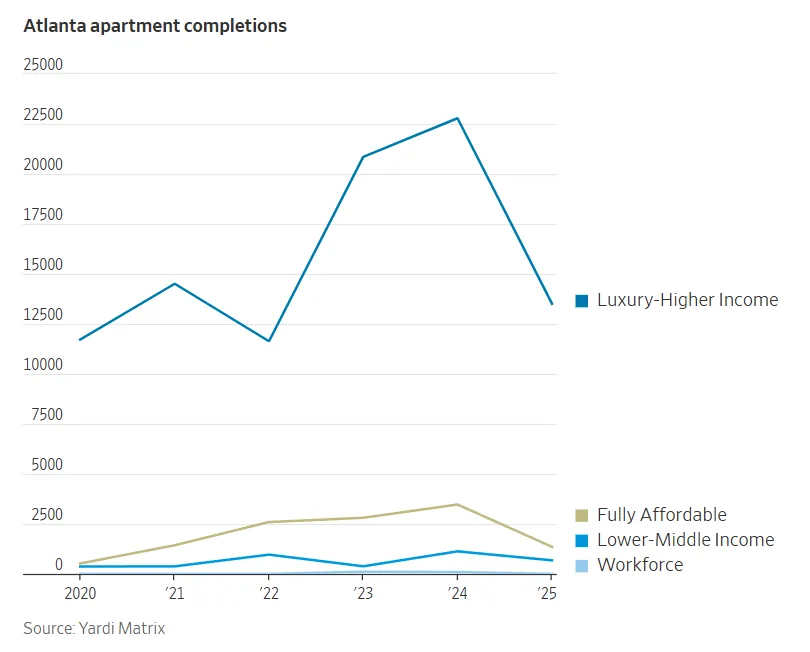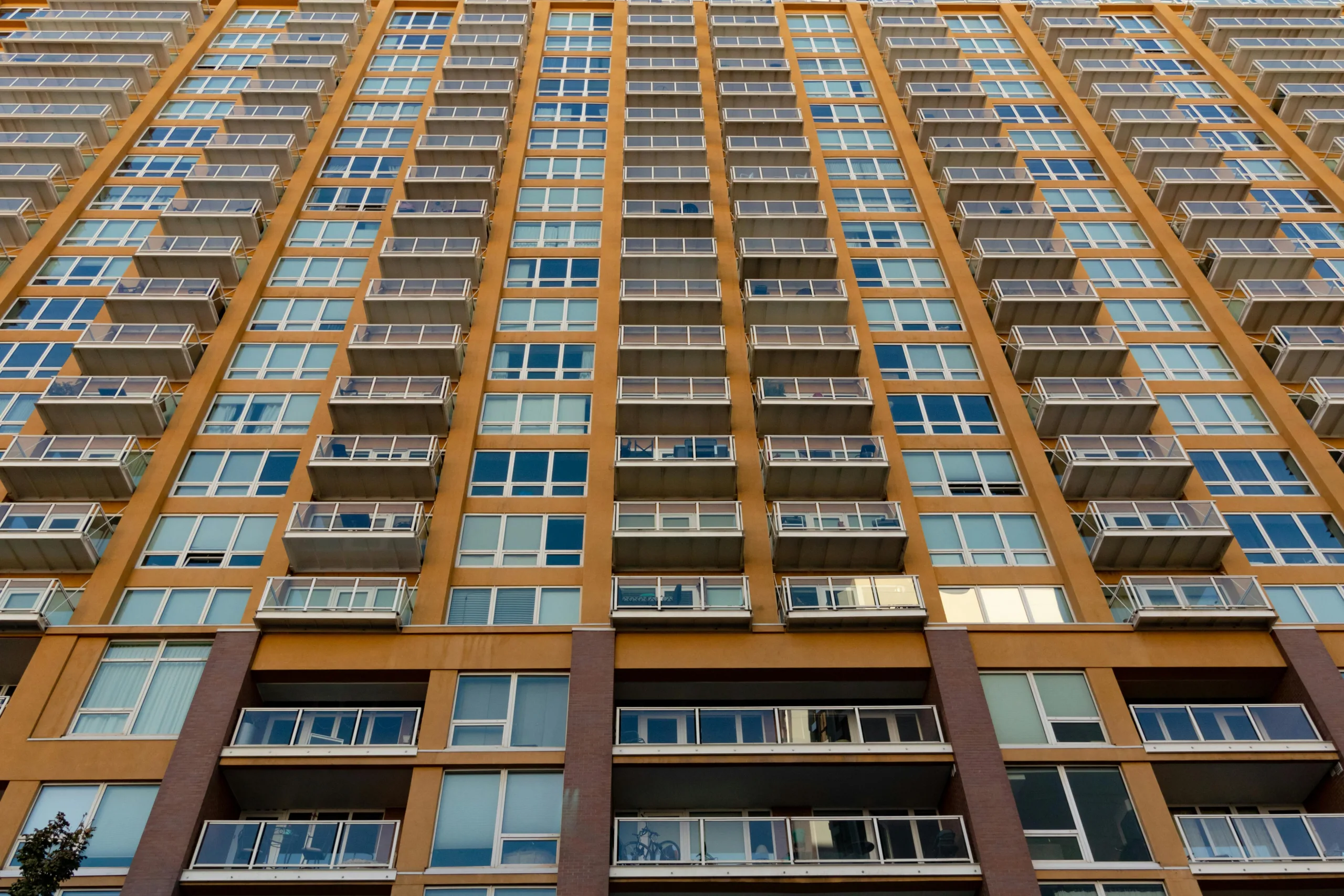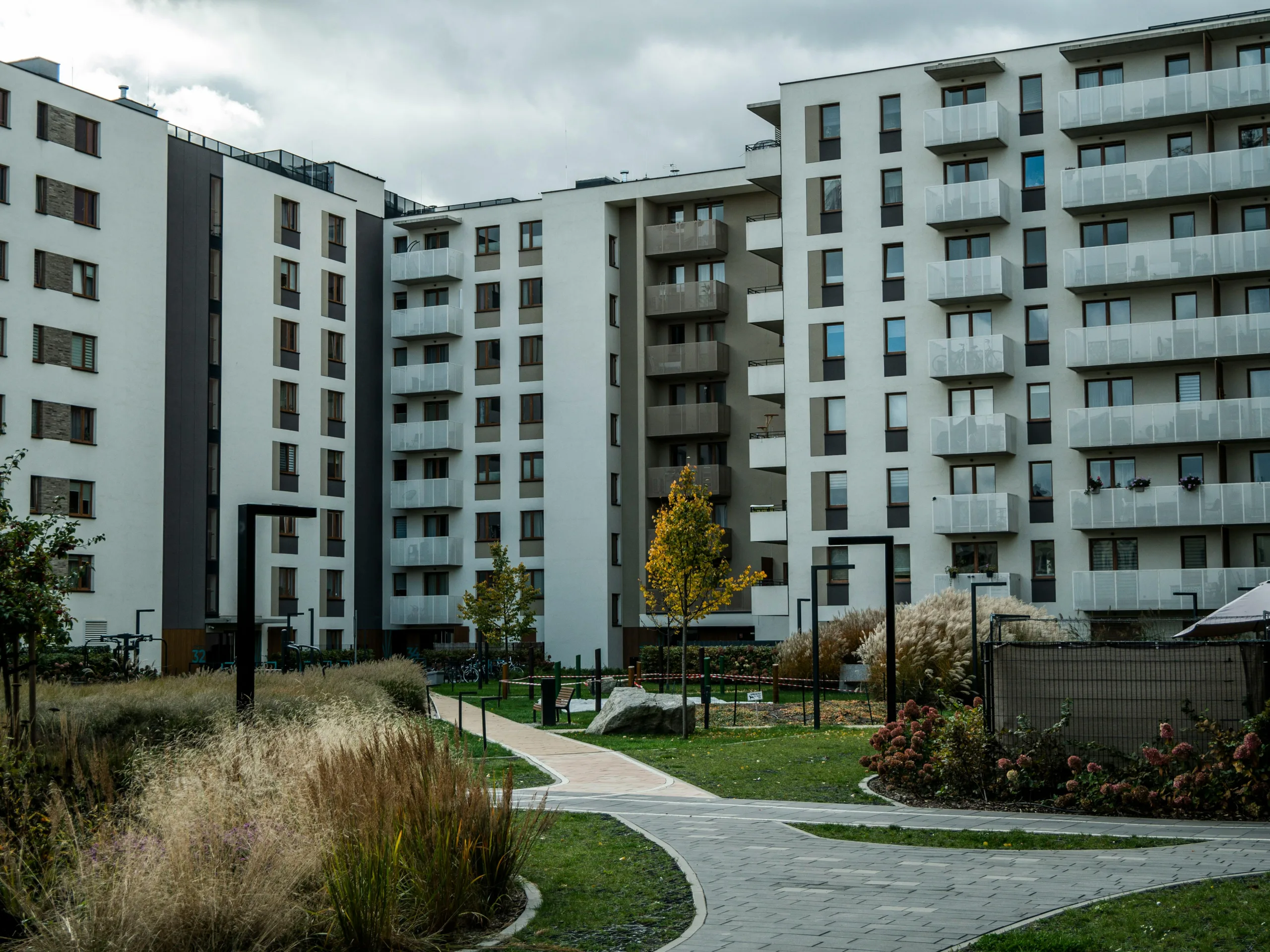- In some Atlanta apartment buildings, landlords say as many as 50% of rental applications are fraudulent.
- Nearly three-quarters of US apartment operators reported a major uptick in fraud in the past year, with some citing a 40% increase.
- A mismatch between luxury inventory and renters’ budgets is fueling the rise in forged applications, especially in fast-growing Sunbelt cities.
Atlanta’s Apartment Fraud Problem Is Going Mainstream
What used to be a niche issue has ballooned into a widespread challenge in Atlanta: renters submitting fake information to get into luxury apartments. Property managers say the practice is rampant, especially in newer, high-end buildings where units are sitting empty, reports WSJ.
From falsified income statements to entirely fabricated identities, applicants are increasingly using doctored documents or purchasing “fraud kits” promoted on social media. In some cases, these kits include fake credit scores and made-up job histories—all designed to bypass standard tenant checks.
TikTok Tips And Instagram How-Tos
What’s helping spread the fraud faster? Social media. Influencers are openly promoting tips on how to cheat the system, with some selling step-by-step guides for hundreds of dollars.

One popular method involves using a Credit Profile Number (CPN) in place of a real Social Security number—illegal when used on housing applications. Some content even flaunts how renters with poor credit or multiple evictions got approved for premium apartments using these tactics.
How The Housing Market Set The Stage
This surge in fraud didn’t happen in a vacuum. Atlanta has added more than 100K new apartments since 2020—many of them luxury units priced far beyond what average residents can afford.
At the same time, affordable housing has disappeared. Between 2018 and 2023, metro Atlanta lost over 230K rental units priced below $1,500. With fewer affordable options and looser leasing standards during the pandemic, the opportunity for fraud grew quickly.
Landlords Playing Catch-Up
Some building managers are only now starting to adopt fraud-screening software after realizing that manual reviews weren’t enough. Companies like Snappt and ApproveShield have stepped in to flag inconsistencies in documents, but fraudsters are evolving just as fast—often using AI tools to generate increasingly realistic fakes.
Even when fake tenants are caught, landlords are more focused on removing them than pursuing legal action. Evictions alone are costly and time-consuming, and many renters leave unpaid bills and damaged units behind.
A Nationwide Issue With Local Roots
While Atlanta stands out, cities like Houston, Miami, and DC are also seeing more falsified applications, particularly in buildings with high vacancy rates. According to industry data, 2024 brought a nationwide surge in housing fraud, with many landlords reporting double-digit increases.
At the heart of it all is a structural mismatch: too many luxury rentals and not enough housing for middle- and low-income renters. The result? A housing landscape where fraud has, for some, become a desperate workaround.
Bottom Line
Atlanta’s rental fraud boom is less about scammers gaming the system and more about a housing system out of sync with reality. As affordability continues to decline, cities with excess luxury inventory and limited oversight may see this trend grow before it gets better.
















